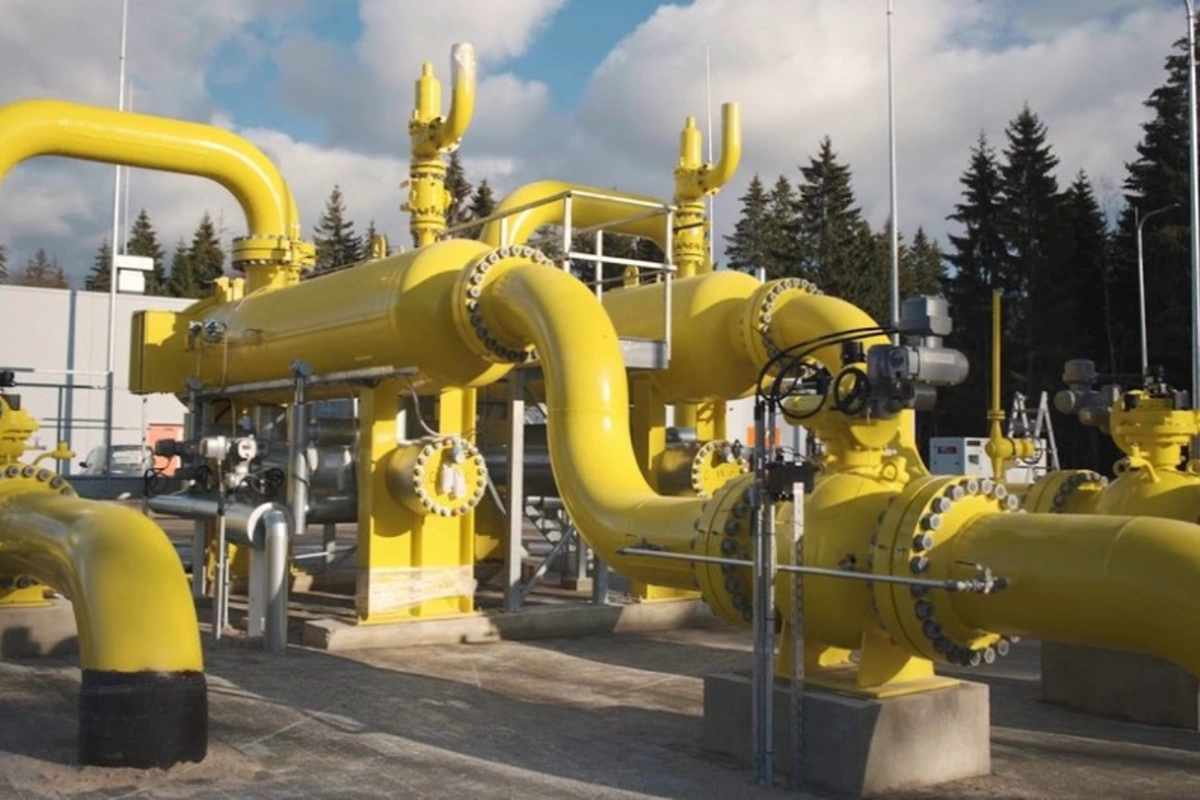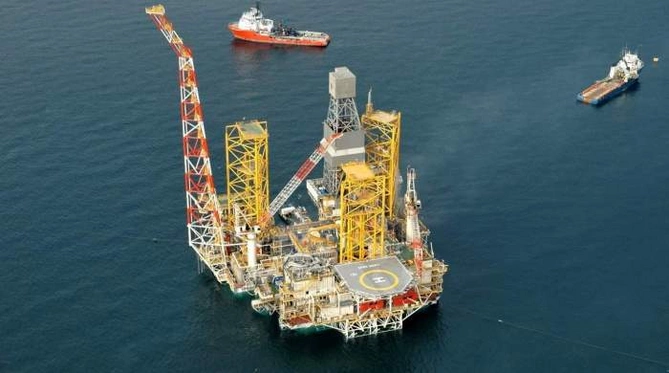
Elshad Nasirov, Vice President of SOCAR, at an international conference in Turkmenistan in October last year, explained in detail why Russian, Turkmen, or any gas other than Azerbaijani cannot reach Europe through the Southern Gas Corridor.
Photo: Social media
News.Az has published an article entitled “Why doesn't Azerbaijan engage in re-exporting Russian gas?”. The Caspian Post reprints the article.
Hikmet Hajiyev, Assistant to the President of Azerbaijan, has demanded an apology from Politico for Gabriel Gavin's article, "Europe’s Gas Gambit with Azerbaijan Is Good News for Russia." The article was written ahead of the expiration of the gas contract between Europe and Russia and the anticipated increase in EU imports of Azerbaijani gas. The author's claims are not based on any facts or figures, which is very unfortunate as it reflects the decline in the standards of Western journalism.
Hikmet Hajiyev reasonably pointed out that Azerbaijan has not imported gas from Russia in 2024. This fact is the key evidence refuting the allegations. It is worth noting that these figures are not classified, and the journalist could have conducted their own investigation before spreading false narratives. It is clear that the article was written to serve a specific agenda. However, who said that such an article should not be supported by facts? The statements of some "dissident" cannot serve as credible evidence for such serious accusations. Where are the facts? Of course, there are none and could not be.
The fact that discussions around gas supplies to European countries took place even on the sidelines of the COP29 climate conference underscores the level of interest from European countries in importing Azerbaijani gas. It should be emphasized that gas-related issues were raised at the initiative of the guests, not the Azerbaijani side. This has always been the case. The Declaration on Strategic Partnership in Energy was also signed at the initiative of the European Union. President Ilham Aliyev reminded everyone of this once again during his speech at the COP29 Leaders' Summit. "Due to the changing geopolitical situation, they needed our gas. They asked us for help. And we said: 'Okay.' We are always ready to help when our assistance is needed. And we said: 'Okay, we will help Europe with energy security,'" the President stated. The European Commission has also asked Azerbaijan to double its gas supplies to Europe by 2027.
Amid the sharp increase in gas purchases by EU countries from Russia, the attempts to accuse Azerbaijan of allegedly re-exporting Russian gas and helping Moscow bypass sanctions sound strange. Some claim that Azerbaijan has run out of its own gas and is now reselling Russian gas to Europeans. These accusations have been repeatedly refuted, including by EU representatives. Last year, during a briefing, a relevant question was posed to Tim McPhie, the European Commission’s spokesperson for Climate Action and Energy. He responded that the gas volumes purchased by the EU from Azerbaijan do not include Russian gas. Mr. McPhie emphasized that the volumes of gas exported from Russia to Azerbaijan are significantly smaller than those delivered from Azerbaijan to Europe. Therefore, there is no Russian gas in these supplies. "We only import Caspian resources," stated the European Commission representative.
Elshad Nasirov, Vice President of SOCAR, at an international conference in Turkmenistan in October last year, explained in detail why Russian, Turkmen, or any gas other than Azerbaijani cannot reach Europe through the Southern Gas Corridor. The gas from the Shah Deniz field is transported to the Sangachal terminal, and from there, there is only one exit: the South Caucasus Pipeline, which connects to TANAP and then to TAP.

Photo: BP Azerbaijan
As for the alleged "gas shortage" in Azerbaijan, these claims contradict reality. Recently, operations began at the Absheron field, which holds reserves of 5 billion cubic meters. At the beginning of 2024, a BP-led consortium announced the discovery of a major gas reservoir in the deepwater layers of the Azeri-Chirag-Gunashli (ACG) field in the Caspian Sea. According to estimates, the gas reserves at this new field amount to 4 trillion cubic feet, equivalent to approximately 113 billion cubic meters. This discovery could significantly increase the gas reserves available for export to Europe, especially under long-term agreements between Azerbaijan and the European Union. Gas production at this field is expected to begin next year.
With such resources, would Azerbaijan fill its export pipeline with foreign gas? The answer to this question is quite clear. Re-exporting Russian gas in this situation is absolutely pointless.
Azerbaijan has committed to doubling its supplies to Europe compared to 2021 levels, when exports stood at just over 8 billion cubic meters. After this, Europe started discussing 20 billion cubic meters. However, due to uncertainties surrounding EU financing for t he expansion of TAP , Baku decided not to deviate from the initial agreements. Thus, by 2027, 16 billion cubic meters of Azerbaijani gas will be delivered to European markets—not because Azerbaijan lacks resources, but because the oil and gas business is not about charity; it is about commercial projects. Azerbaijan could easily pump 20 billion cubic meters into the pipeline if TAP, designed for a capacity of 10 billion, were expanded. However, this is not Baku’s responsibility; it is the responsibility of those countries interested in purchasing Caspian gas.
Share on social media